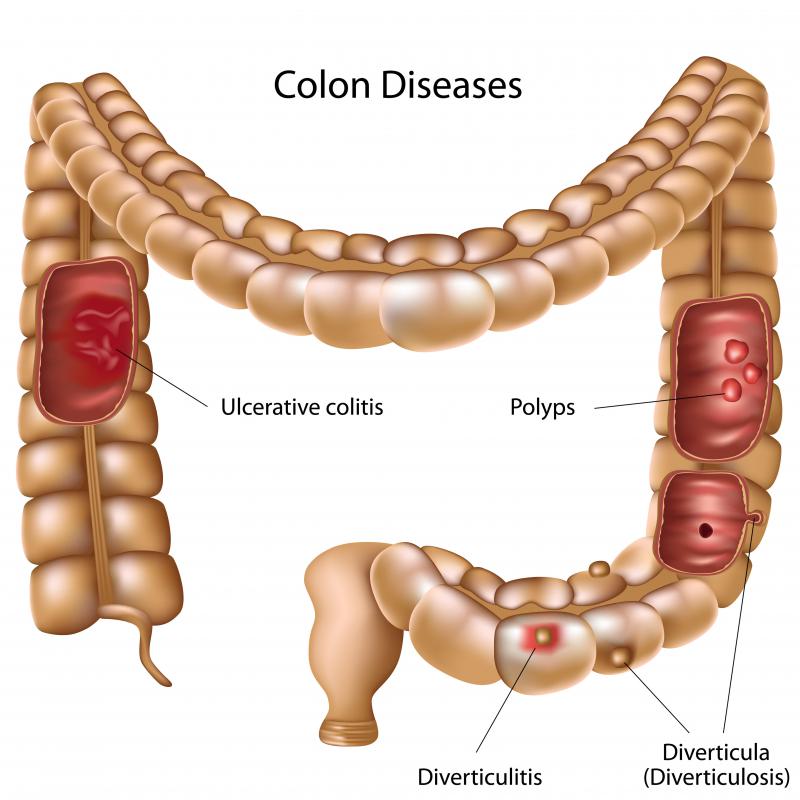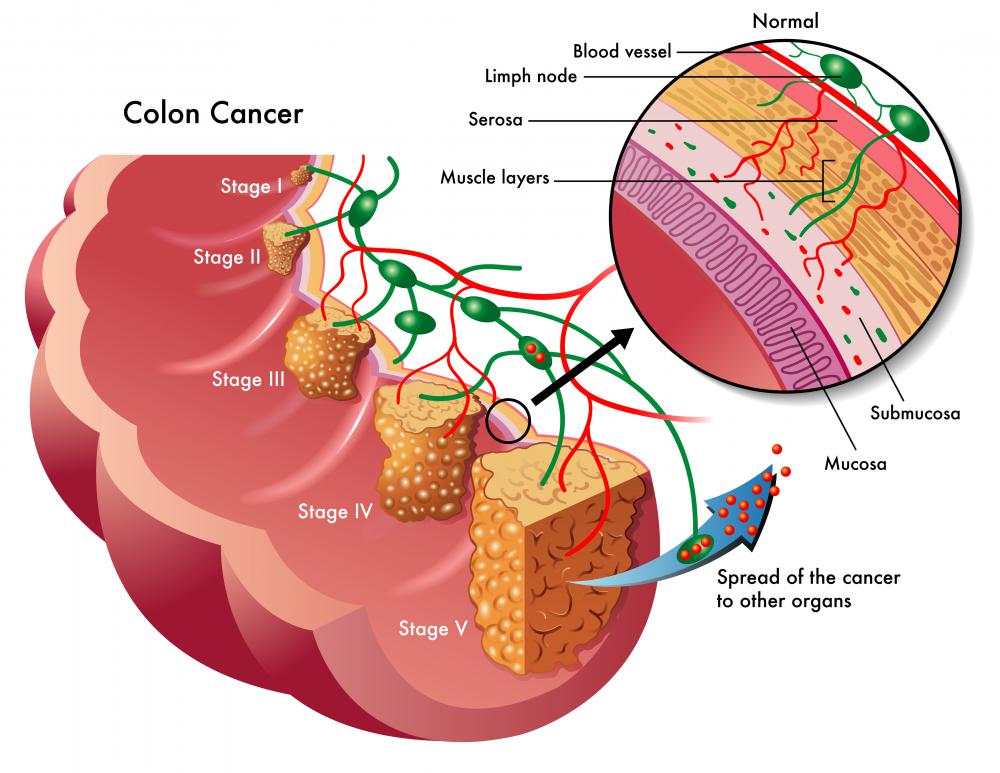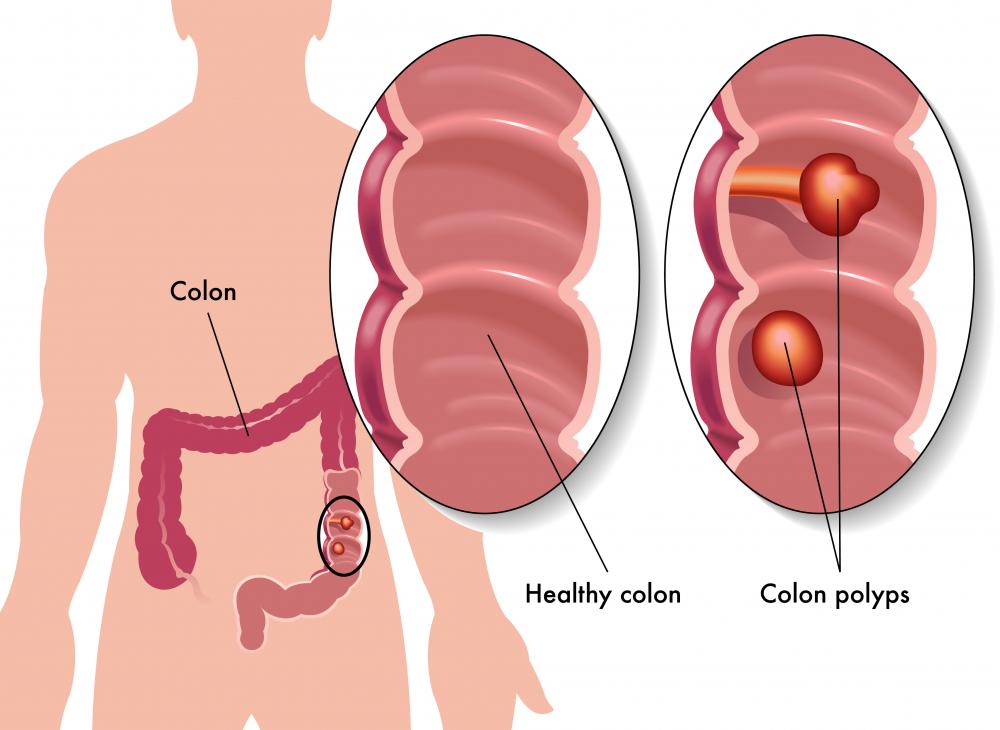At WiseGEEK, we're committed to delivering accurate, trustworthy information. Our expert-authored content is rigorously fact-checked and sourced from credible authorities. Discover how we uphold the highest standards in providing you with reliable knowledge.
What Is the Connection between Polyps and Cancer?
The main connections between polyps and cancer, especially cancers of the colon, is that occasionally polyps can turn into malignancies. Both polyps and cancerous tumors are similar in composition, although polyps are not cancerous and many do not have the capability to become cancerous over time. Some, however, when left alone do have the potential to develop into cancerous tumors.
A polyp is a small or large growth found within certain tissues. They are often found in the colon and are most common amongst those who are over 50 years of age. Since colorectal cancers are both common and deadly, most people are encouraged to begin annual testing for colon cancer between 45 and 55 years old. If polyps are found, they are often removed or sampled, depending on the size and location, and tested to ensure that they are not cancerous.

Both polyps and cancer are similar in appearance, so it is difficult to tell based on sight whether a patient has a cancerous tumor or a polyp. Additionally, some polyps have the potential to develop into cancer if they are allowed to progress. Those found on the right side of the colon are considered more dangerous than those on the left, and especially large polyps are particularly troublesome. Since polyps and cancer of the colon are heavily linked, most large polyps will be removed and tested for cancerous cells.

Polyps and cancer of the colon may be detected using a colonoscopy, which is a special camera which is inserted into the large intestines. Occasionally other methods may be used, such as X-ray technology. Patients are often given anesthesia before undergoing a colonoscopy procedure. This test is generally performed in a hospital or doctor's office, and patients are generally allowed to leave the same day if no complications occur.

Although polyps and cancer can be related, patients who have been shown to have polyps should not always become concerned. Many polyps are completely benign and have no threat of becoming cancer. Those which are found to be precancerous are often removed successfully before they have time to progress or spread, which is why patients are encouraged to have routine tests performed as they approach middle age.
AS FEATURED ON:
AS FEATURED ON:














Discuss this Article
Post your comments